Decoding Internet Advertising Cost for Better ROI
- Chase McGowan

- Aug 8
- 15 min read
When you ask, "How much does internet advertising cost?" you're really asking, "How much does a vehicle cost?" The answer depends. Are you buying a scooter to zip around town or a fleet of commercial trucks? There’s no single price tag.
Your internet advertising budget isn't a fixed expense—it's a flexible investment you control. The final cost comes down to your industry, your goals, and the platforms you choose. Ultimately, it boils down to one key decision: are you paying for potential views, or are you paying for tangible results?
Your Guide to Internet Advertising Costs

Think of your ad budget as a dynamic tool, not a static line item. It's shaped by your business objectives and the competitive heat in your market. The goal is to stop being a passive spender and start being an active strategist, making every dollar work toward a clear outcome.
This is the exact point where many businesses stumble, especially when they hire large, impersonal agencies. These firms often apply a one-size-fits-all formula, which almost always leads to wasted spend and murky results.
Why a Specialized Strategy Is a Non-Negotiable
A generic approach will never deliver exceptional results. It’s that simple. Over-priced, bloated agencies often treat your budget as just another number in their portfolio, handing it off to junior-level staff who lack the deep, platform-specific knowledge needed to win.
Worse yet, their high overhead—from fancy downtown offices to layers of administrative teams—gets baked directly into your management fees. This eats into the very funds that should be fueling your campaigns and driving your growth.
A dedicated Google Ads consultant offers a much leaner, more effective path. Your investment goes directly toward expertise and focused execution, not toward propping up an agency's bloated infrastructure. This one-on-one relationship ensures your strategy is built around your unique goals, not some pre-packaged agency "solution."
The biggest risk in advertising isn't overspending; it's spending without a clear strategy. An expert-led approach makes sure your budget is an investment in growth, not just another entry on an expense report.
An independent specialist dives deep into your account to spot opportunities a generalist at a big firm would almost certainly miss. This hands-on approach includes:
Pinpointing Inefficiencies: Immediately identifying and cutting spend on low-performing keywords or audiences that a larger, slower firm might overlook for months.
Maximizing True ROI: Focusing relentlessly on campaigns that drive actual conversions and revenue—not just vanity metrics like clicks or impressions that look good on a report but don't impact your bottom line.
Direct Accountability: You speak directly with the expert managing your money. This guarantees total transparency and allows for rapid strategic adjustments when needed.
Ultimately, controlling your internet advertising costs means choosing a partner whose business model is aligned with your success. You're not just buying ads; you're investing in a strategy. The right expert ensures that investment delivers the highest possible return, turning your ad budget into a powerful engine for predictable growth.
The Three Core Pricing Models Explained
To get a real grip on your internet advertising costs, you first have to understand exactly how you’re paying. The entire world of online ads really boils down to three fundamental pricing models, and each one is built for a different business goal. Getting this right is the difference between a budget that fuels growth and one that just quietly drains your bank account.
This is where working with a seasoned expert, rather than a big, clunky agency, gives you an immediate edge. An independent consultant’s only goal is to match the pricing model to your specific objectives—whether that’s getting qualified leads or making actual sales.
In contrast, bloated agencies often default to models that are just easier for them to manage at scale or that pump up vanity metrics. This makes their reports look impressive while your bottom line takes a hit. They might push a high-spend, low-impact model simply because it fits their internal workflow, not what your business actually needs.
Let’s break down the three core models. I'll use some practical analogies so you can see which one truly fits your strategy.
This infographic shows how these three core metrics—CPC, CPM, and CPA—all feed into your total ad spend.

As you can see, your budget gets sliced up across these different payment structures depending on what you're trying to achieve with your campaign.
CPC (Cost Per Click): Pay for a Visit
Cost Per Click is easily the most common model out there, especially on platforms like Google Ads. Think of it like paying for a turnstile at a concert. You don't pay for all the people milling around outside; you only pay the operator when someone makes the choice to walk through the gate.
With this model, you’re charged every single time a user clicks on your ad. It's the perfect choice when your main goal is to drive traffic directly to your website, a specific landing page, or an e-commerce product page. You're paying for a user's explicit interest.
But here’s the catch: not all clicks are created equal. This is a critical blind spot where an expert consultant proves their worth. An agency might get excited about a high click-through rate, but a specialist digs deeper. Are these clicks actually converting? Are they from your target audience, or are you just paying for digital window shoppers? Without that analysis, CPC can quickly burn through your budget with low-quality traffic that never becomes a customer.
CPM (Cost Per Mille): Pay for Exposure
CPM stands for Cost Per Mille—"mille" is just Latin for a thousand. With this model, you pay a flat rate for every 1,000 times your ad is shown (or "impressed"), regardless of whether anyone clicks on it.
Think of this as renting a billboard on a busy digital highway. Your goal isn't necessarily to make every driver pull over right then and there. It's to build brand recognition so they remember you when they do need what you offer. CPM is built for campaigns focused on brand awareness and reach.
The real danger with CPM is paying for impressions that nobody actually sees. A seasoned consultant makes sure your "billboard" is placed on the right highway—right in front of a relevant audience—and not on some forgotten digital back road where your budget is just evaporating into thin air.
CPA (Cost Per Acquisition): Pay for a Result
Cost Per Acquisition is the ultimate performance-based model. You only open your wallet when a specific, valuable action is completed. That action could be a sale, a completed contact form, or a new newsletter signup.
This is like hiring a salesperson who works purely on commission. You don't pay them for making calls (impressions) or for drumming up interest (clicks); you only pay them when they actually close a deal. For any business laser-focused on ROI, CPA is the gold standard. It ties your advertising cost directly to outcomes that generate revenue.
However, setting up a winning CPA campaign requires serious technical skill. You need flawless conversion tracking and enough clean data for the ad platform's algorithm to learn and optimize effectively. A specialist ensures this foundation is rock-solid from day one. An agency, on the other hand, might shy away from the detailed setup and steer you toward simpler CPC or CPM models that are less accountable but easier for them to run.
By focusing on CPA, a true expert partner ensures your budget is spent on the only thing that matters: actual business growth.
What Really Drives Your Advertising Costs

Beyond the pricing models, your final internet advertising cost comes down to a few powerful, often hidden, factors. Understanding these levers is what turns your ad budget from a blind expense into a strategic weapon. Honestly, getting this right is what separates businesses that grow online from those that just bleed cash.
This is where the difference between a dedicated consultant and a bloated agency becomes glaringly obvious. A big agency might set up your campaign and just let it run, completely missing the subtle signals that are quietly draining your budget. Their junior account managers often lack the deep experience to see what's happening beneath the surface metrics.
As a specialist, my entire focus is on actively managing these cost drivers. I don't just "set it and forget it." I'm constantly analyzing and tweaking, making sure every dollar you spend is working as hard as it possibly can. It’s a hands-on, expert approach you just don't get from a big firm juggling hundreds of clients.
The Power of Precise Audience Targeting
Who you show your ads to is probably the single most important factor that dictates your costs. It all comes down to basic supply and demand. If you're targeting a huge, generic audience, sure, you might get cheaper clicks, but they'll be far less likely to actually do anything.
On the flip side, targeting a very specific, high-intent niche—think "emergency plumbers in Brooklyn"—will cost more per click. Why? Because that person is actively searching for a solution right now. While the upfront cost is higher, the potential return is enormous because you're reaching people who are ready to buy.
An agency might be tempted to go broad to show you impressive-looking numbers for impressions and clicks on their reports. I do the exact opposite. I help you zero in on your most profitable customers, even if it means fewer clicks overall. This targeted strategy gets you a much lower cost per acquisition, which is the metric that actually grows your business. You can learn more about how to lower your Cost Per Acquisition in our dedicated guide.
Ad Quality and Its Impact on Your Wallet
Platforms like Google don't just care about who has the biggest wallet; they care deeply about the user's experience. To reward advertisers who create relevant and genuinely helpful ads, they use a system called Quality Score. You can think of it as a report card for your ads.
A high Quality Score tells Google that your ad and the page you're sending people to are a fantastic match for what they searched for. In return, Google gives you two huge advantages:
Lower CPCs: You can actually pay less per click than a competitor with a bigger budget, just because your Quality Score is higher.
Better Ad Positions: Your ads get a better shot at appearing right at the top of the search results page.
A low Quality Score is a silent budget killer. It's a direct tax for lazy advertising—something overpriced agencies are often guilty of. They use generic ad copy and don't bother optimizing landing pages, which forces you to overpay for every single click.
I obsess over Quality Score. From writing compelling ad copy to making sure your landing pages are seamless and fast, my work is built to earn you that top grade from Google. It's like getting a built-in discount on all your advertising.
The Unavoidable Force of Competition
Finally, there's no getting around it: the level of competition in your industry directly impacts your internet advertising cost. If you’re in a crowded space like law or insurance, you’re in a bidding war against countless other businesses for the same keywords and audiences. This drives up the price for everybody.
And this pressure is only getting worse. Since 2019, global ad spending has shot up by over 50%, with digital leading the pack. In 2024, digital ad investments blew past $790 billion, which is about 72.7% of all ad spending worldwide.
This is where a specialist's strategic thinking is priceless. An agency might just tell you to throw more money at the problem to compete. I look for the gaps—the less obvious keywords, the underserved audiences, the unique angles—that let you sidestep the head-to-head competition and carve out your own profitable corner of the market.
The Specialist Advantage vs. The Agency Problem

Alright, you get the nuts and bolts of ad costs. But the single biggest factor dictating your total spend isn’t a metric like CPC or CPM. It’s who manages your money.
The choice between a big-box digital marketing agency and a dedicated, independent specialist will ripple through every part of your advertising—from your internet advertising cost to the actual profits you see. This isn't just about management fees. It's about the entire philosophy of how your budget gets treated.
It's the difference between being a small fish in an agency's giant pond or a priority client whose success is directly tied to the expert running the show.
The Bloated Agency Model
Many traditional agencies operate on a model that’s broken from the start—inflating costs before your first ad even goes live. They come saddled with massive overhead. Think expensive downtown offices, layers of account managers, administrative teams, and aggressive sales departments.
Guess who pays for all that? You do. Those costs are passed directly to you through high retainers and padded fees.
You might get a friendly account manager, but the person actually in your Google Ads account is often a junior employee, fresh out of training and juggling dozens of other clients. They follow a standardized agency playbook, applying the same generic strategies to every account, whether you're selling B2B software or custom dog collars. This one-size-fits-all approach is a surefire recipe for wasted money and flat-line results.
The real problem with the agency model is that you’re paying for their infrastructure, not for elite expertise. Your investment is diluted, funding their mahogany desks and bloated payroll instead of being laser-focused on squeezing more performance out of your ads.
This structure creates an inherent conflict of interest. The agency's main goal often shifts to client retention and upselling you on more services, not wringing every last drop of performance from your budget. Your campaigns can sit stagnant for weeks or even months because the team is too stretched to give your account the focused, daily attention it truly needs to win.
The Lean and Focused Specialist
A specialist consultant operates on a completely different premise. My business model is intentionally lean. There are no fancy offices or layers of bureaucracy to pay for. It’s built around a single, powerful asset: deep, hands-on expertise in a platform that's notoriously complex.
When you work with a specialist, your investment goes directly toward strategic thinking and execution. You aren't just another row on a spreadsheet; you are the focus. This one-on-one relationship means we are completely aligned on your business goals.
An agency sells you a system; a specialist is the expert. For any business that needs every advertising dollar to pull its weight, this distinction is everything. If you're tired of seeing lackluster results, it's worth exploring why hiring a senior Google Ads consultant beats working with a bloated PPC agency. It can be the key to unlocking a clear path to growth.
Deep Expertise vs. Generalist Knowledge
The world of digital marketing is huge. A large agency has to be a jack-of-all-trades, offering everything from SEO and social media to email marketing and web design. This forces their teams to be generalists. They might know a little about a lot of things, but they rarely have the deep, nuanced understanding of a single platform that's required to get top-tier results.
Google Ads is not a platform that rewards general knowledge. It's a beast. Its algorithms are complex, its features change constantly, and getting a real competitive edge requires obsessive focus. A specialist lives and breathes this stuff, every single day.
This is where a specialist’s value really shows up:
Strategic Bid Management: I don’t just "set it and forget it." I hunt for pockets of undervalued attention with advanced bidding strategies, making sure you don’t overpay in hyper-competitive auctions.
Relentless Creative Testing: I constantly test ad copy, headlines, and extensions to find the exact combinations that resonate with your audience. This drives up click-through rates and, crucially, your Quality Scores.
Beyond-the-Click Optimization: My work doesn’t stop when someone clicks. I dig into your landing page performance to make sure the traffic you’re paying good money for has the absolute best chance of converting into a lead or a sale.
A junior agency employee, tasked with managing campaigns instead of mastering them, simply can't replicate this depth. For a business owner, that difference translates directly to the bottom line—as wasted spend with an agency or as profitable growth with a specialist.
Why Global Ad Trends Affect Your Local Budget
It’s tempting to think your local business operates in a bubble, shielded from massive global advertising trends. But the hard truth is, in our hyper-connected world, the moves made by giant corporations an ocean away send ripples right to your doorstep, directly impacting your internet advertising costs.
Think of the digital ad space as one giant ocean. When the big fish—the global megabrands—start splashing around, the water level rises for everyone. Your local market isn't some quiet, isolated pond; it's a bay that's fully connected to that ocean.
This is where the difference between a real consultant and a bloated agency becomes painfully clear. Many agencies wear blinders, focusing only on your direct local competitors. They completely miss the bigger economic forces that are quietly driving your costs up, leaving your budget exposed to these powerful, unseen currents.
The Rising Tide of Global Ad Spending
The sheer scale of what’s being spent globally sets the baseline price for ad space everywhere. The global advertising industry is set to blow past the $1 trillion mark for the first time ever in 2025. And what’s fueling that growth? Digital ads, which are projected to make up 75.2% of that total—a staggering $777 billion. You can dive deeper into these jaw-dropping numbers and what they signal for businesses like yours in this detailed ad spending analysis.
When economic juggernauts like the U.S. and China—who together make up almost 60% of all ad spending—funnel hundreds of billions into platforms like Google and Meta, they create a massive squeeze. That tidal wave of cash inflates the floor price for everything from keywords to audience attention.
So even if you’re a local plumber in Vermont, you're now indirectly bidding against a national home services brand with a multi-million dollar budget. Their massive spending jacks up the price of the very same keywords you rely on to find local customers.
Navigating Cost Inflation with an Expert Strategy
This constant upward price pressure means budget efficiency isn't just a "nice-to-have" anymore. It's an absolute necessity for survival. This is exactly where the standard agency playbook falls apart, because their one-size-fits-all approach isn’t built to handle these complex market dynamics.
In an environment of rising costs, a passive strategy is a losing strategy. You need an active navigator who understands the global currents and knows how to find the sheltered coves where your budget can still deliver an outsized impact.
An expert consultant doesn’t just shrug and accept rising costs. We actively hunt for ways to counteract them. This takes a deep, almost obsessive understanding of the ad platforms that goes way beyond surface-level management.
Here’s how a specialist shields your budget from these global forces:
Finding the Undervalued Niches: I dig for the pockets of opportunity your bigger competitors have ignored. This means finding specific long-tail keywords, unique audience combinations, or less-crowded ad placements that still connect with high-intent customers.
Maximizing Ad Efficiency: I am relentless about improving your Quality Scores. A high score is a direct discount from Google—it lets you win better ad positions for less money, creating a defensive moat around your budget.
Wielding Strategic Bidding: Instead of just throwing more cash at keywords, I use advanced bidding strategies to pinpoint the exact moments your ads will be most effective. This ensures you only pay top dollar when the probability of a conversion is at its peak.
You can’t stop the global economic tide. But with a specialist in your corner, you can build a strategy that makes your business more resilient and your budget far more powerful, ensuring you don't get washed away.
Frequently Asked Questions About Ad Costs
Trying to figure out internet advertising costs can feel like you're lost in the woods. There are a million different variables, and it's shockingly easy to take a wrong turn. This is where real expertise cuts through the noise and focuses on what actually moves the needle for your business.
Let’s tackle some of the most common questions I hear from business owners. The answers all point to one truth: strategic, expert-led management is worlds away from the one-size-fits-all playbook you get from a bloated agency.
How Much Should a Small Business Spend on Internet Advertising?
There’s no magic number here. Some will throw out a generic 5-10% of total revenue, but that’s an old-school agency answer that completely ignores your specific goals, margins, and market.
A much smarter way to build your budget is to work backward from your objectives. First, we need to lock down your target Cost Per Acquisition (CPA)—what are you truly willing to pay for a new customer while staying profitable? From there, a specialist can use industry data and your own business metrics to build a realistic budget designed to hit that exact target.
This approach turns your ad spend into a predictable profit engine, not just an expense line item. You're investing for a specific return, not just hitting an arbitrary percentage that benefits an agency's management fee.
Why Are My Google Ads Costs So High?
If you feel like your Google Ads account is a money pit, you're not alone. High costs almost always boil down to a few core problems that a junior-level agency team will miss.
Poor Keyword Strategy: You might be bidding on super broad, expensive keywords. These attract a ton of clicks from people who are just browsing, not buying. It’s the fastest way to burn cash.
Low Ad Quality Scores: Google rewards you for relevance. If your ads, keywords, and landing pages aren't all singing the same song, Google hits you with a higher CPC. Think of it as a tax on lazy advertising.
Brute-Forcing the Competition: Just throwing more money at competitive keywords is a losing game. It’s the favorite—and least effective—tactic of big, slow-moving firms.
An expert doesn't just ask for more budget to treat the symptoms. We dig in and find the root cause. We refine your keyword lists to focus on buyer intent, write ad copy that gets noticed, and optimize your landing pages to drive up that Quality Score. This work directly lowers your costs and gets you better ad placements for every dollar you spend.
Is It Cheaper to Hire an Agency or a Consultant?
When you look at the real cost of internet advertising, you have to look past the sticker price of the management fee. While the fees might look similar on paper, a specialist consultant nearly always delivers a much better return on your total investment.
An agency's fee is packed with overhead. You’re paying for their fancy office, multiple layers of account managers, admin staff, and their sales team. All that bloat dilutes the actual value you get.
With an independent consultant, your fee goes straight to expert time and performance-focused work on your account. There’s no waste. This lean model means more of your budget goes into the ads themselves, which are then managed by an expert whose success is tied directly to yours.
In the long run, the specialist model is the most cost-effective path to real growth. You invest in expertise and results, not an agency’s infrastructure.
Choosing the right partner is everything, and a deep, hands-on understanding of platforms like Google is non-negotiable. To dig deeper, check out our guide on the [top search engine marketing strategies to boost your ROI](https://www.cometogether.media/single-post/top-search-engine-marketing-strategies-to-boost-your-roi) for some more actionable insights.
One last thing—it's important to know how outside factors can hit your budget. Even local businesses are starting to feel the pinch from digital ad taxes. These taxes, which are getting more common, are levied on ad services and create another expense that gets passed down from the big platforms and agencies. A real expert stays ahead of these regulatory changes, helping you anticipate cost hikes and adjust your strategy to protect your profit. That’s the kind of proactive financial thinking a siloed agency team just doesn't provide, leaving you to absorb the surprise costs.
Stop wasting your budget on bloated agency fees and generic strategies. At Come Together Media LLC, I provide the one-on-one Google Ads expertise needed to drive real results and maximize your return on investment. Let's build a profitable campaign together. Book your free consultation today.




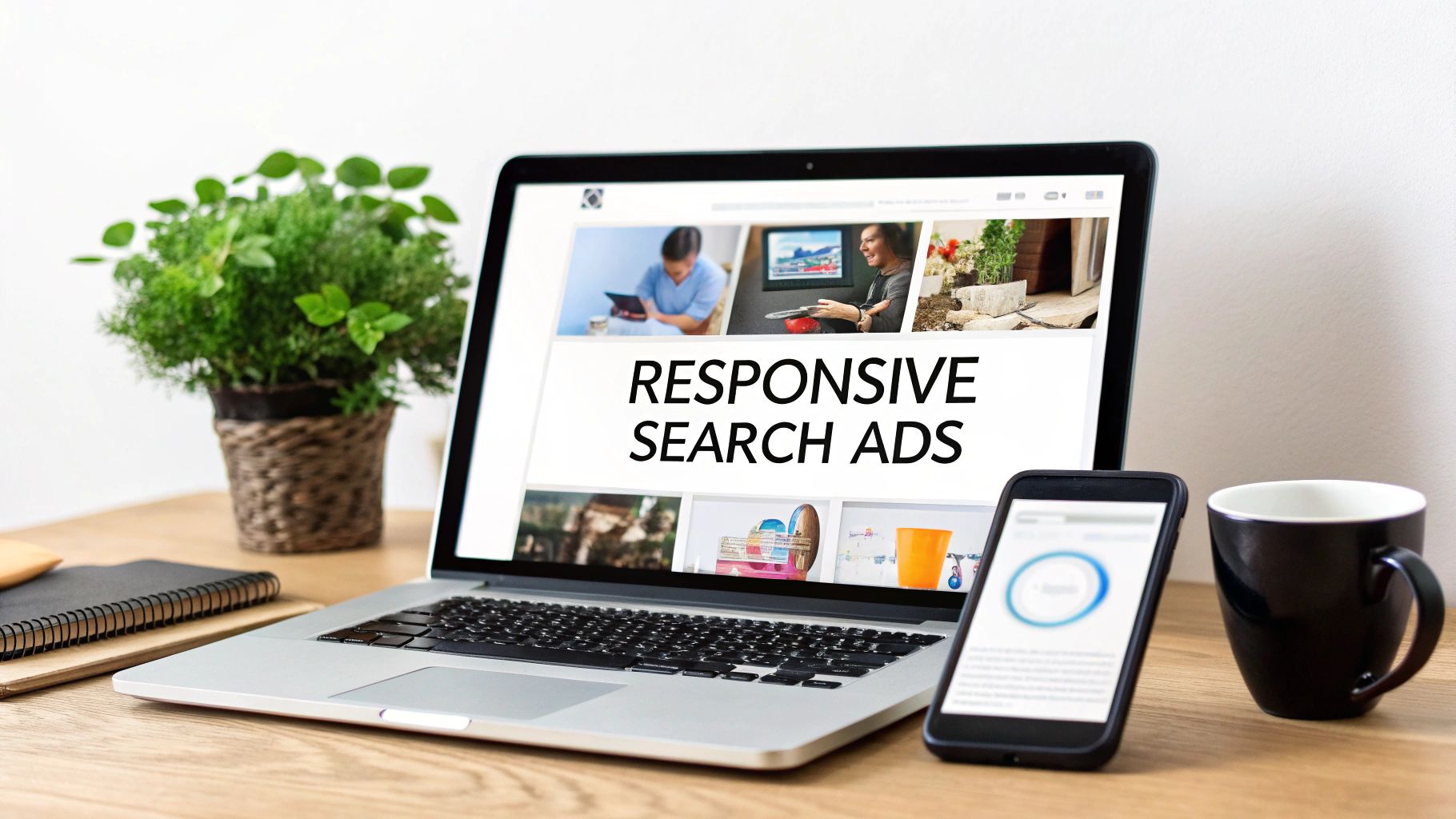
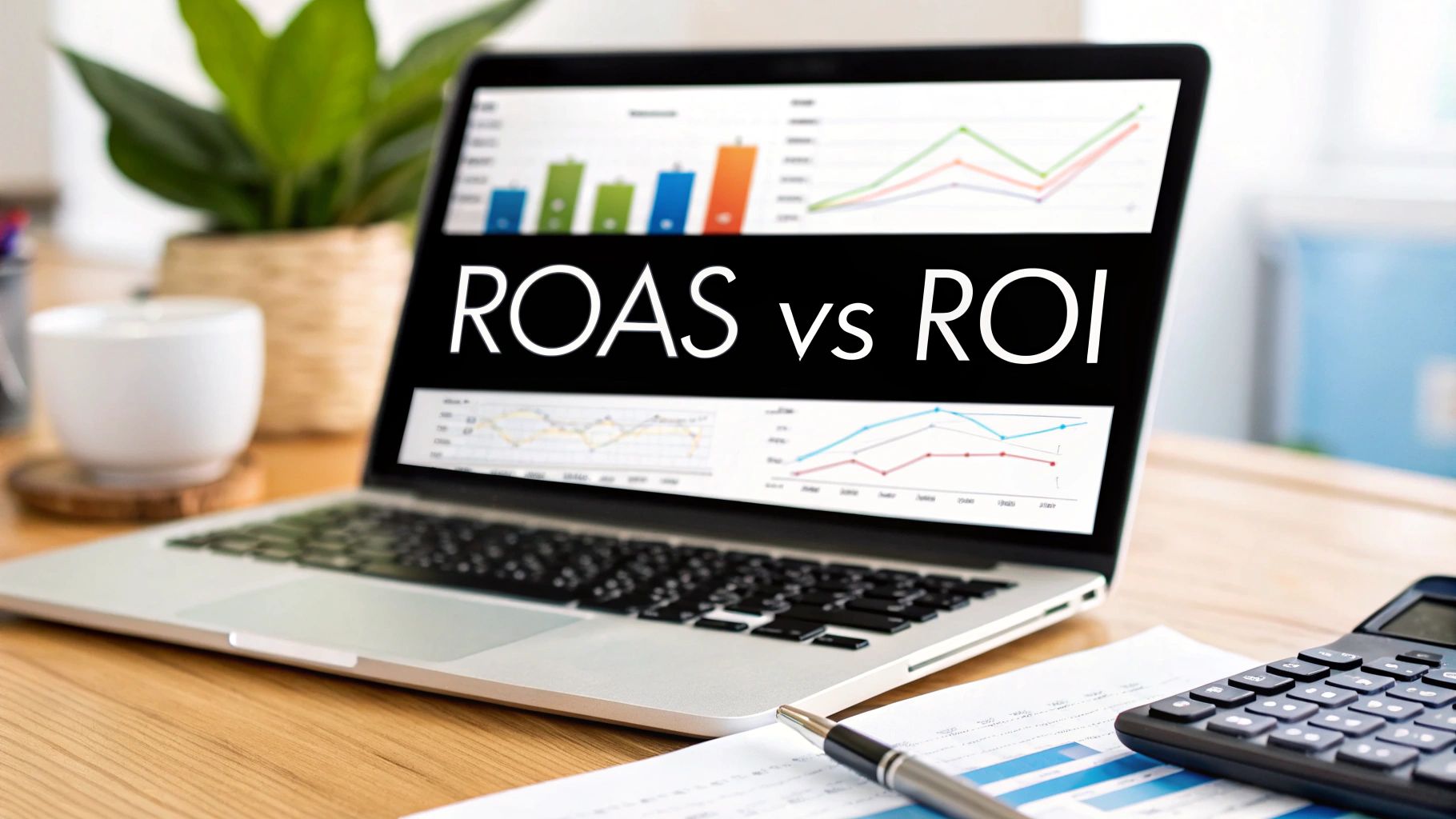
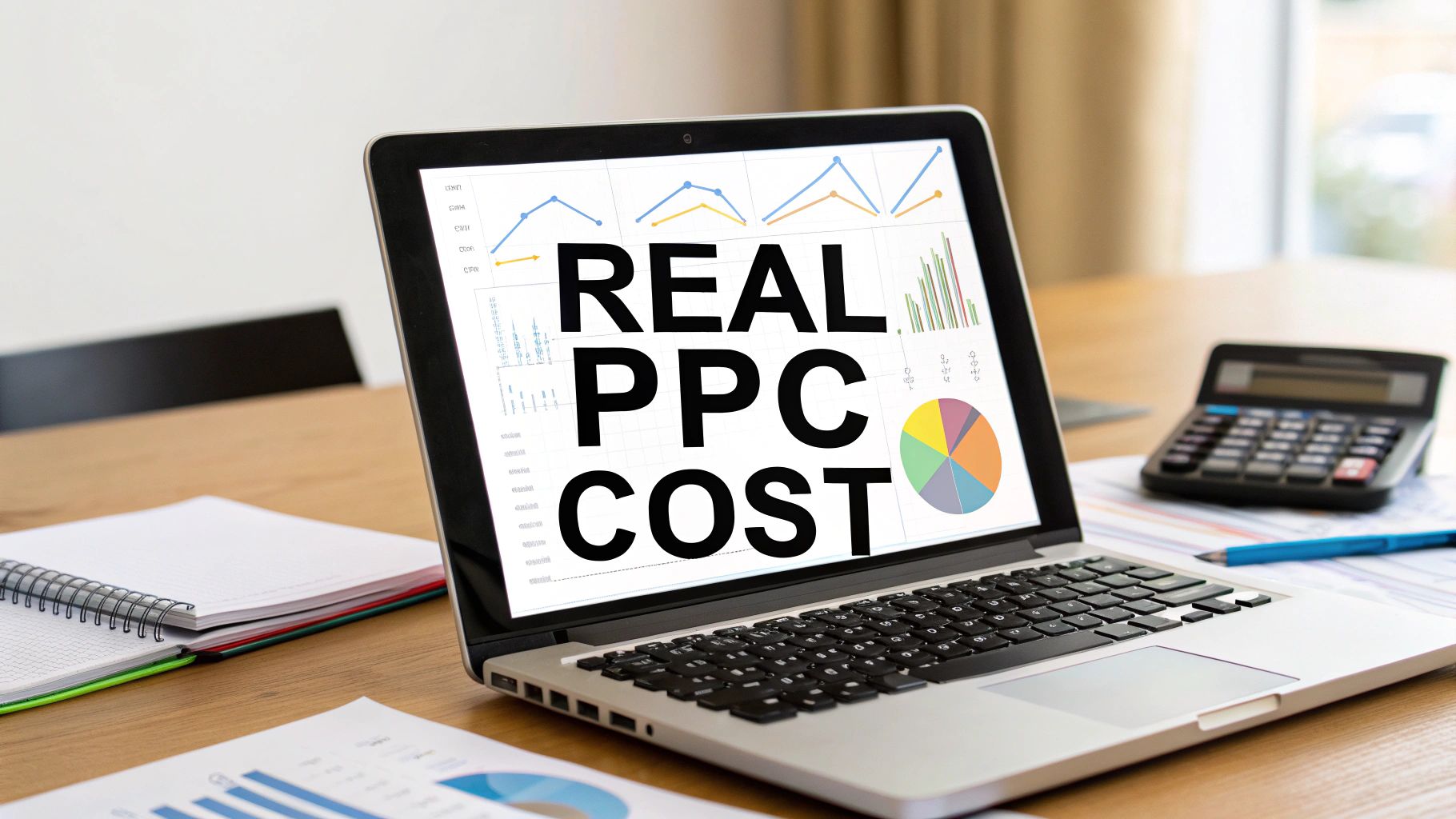
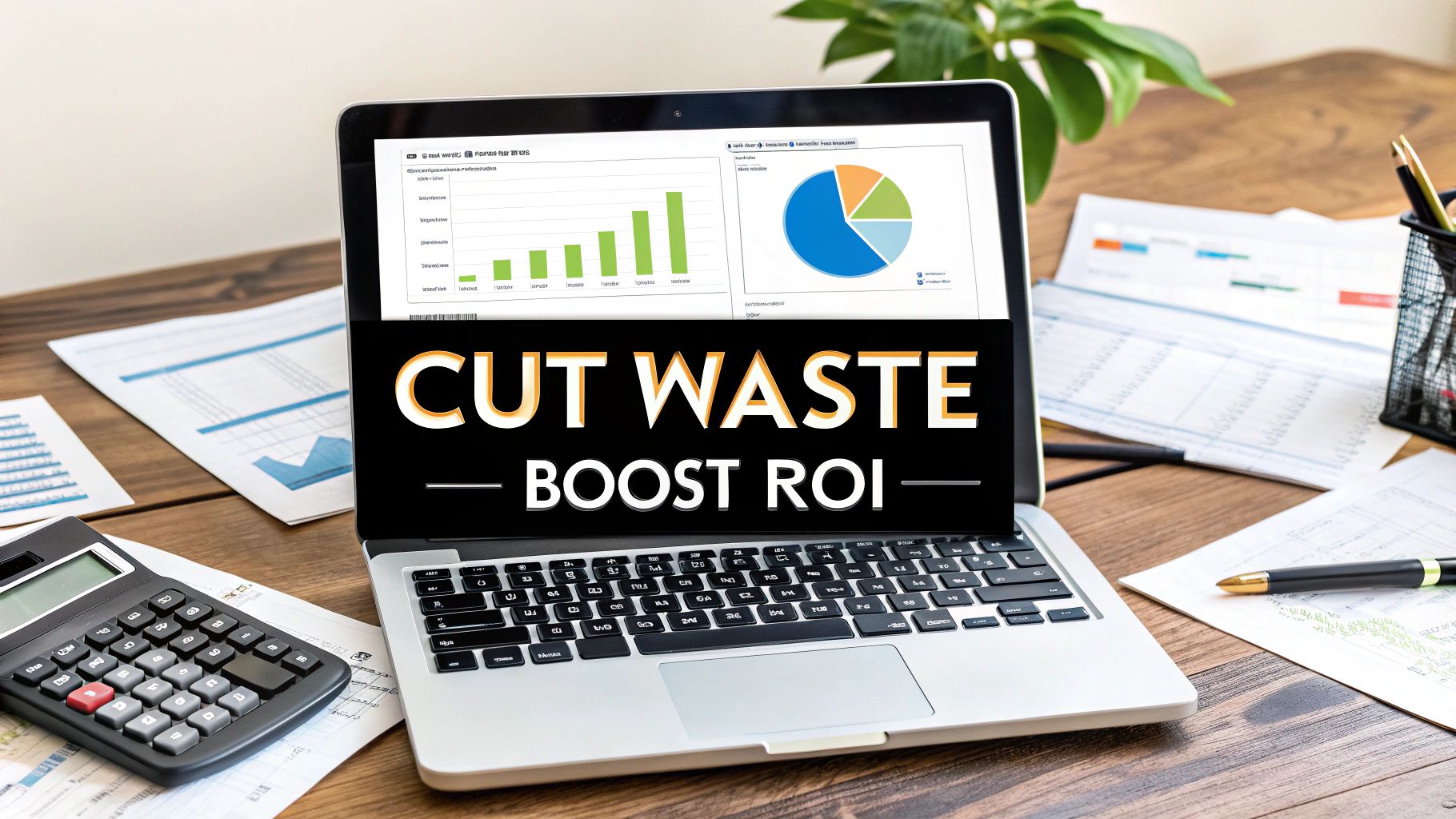
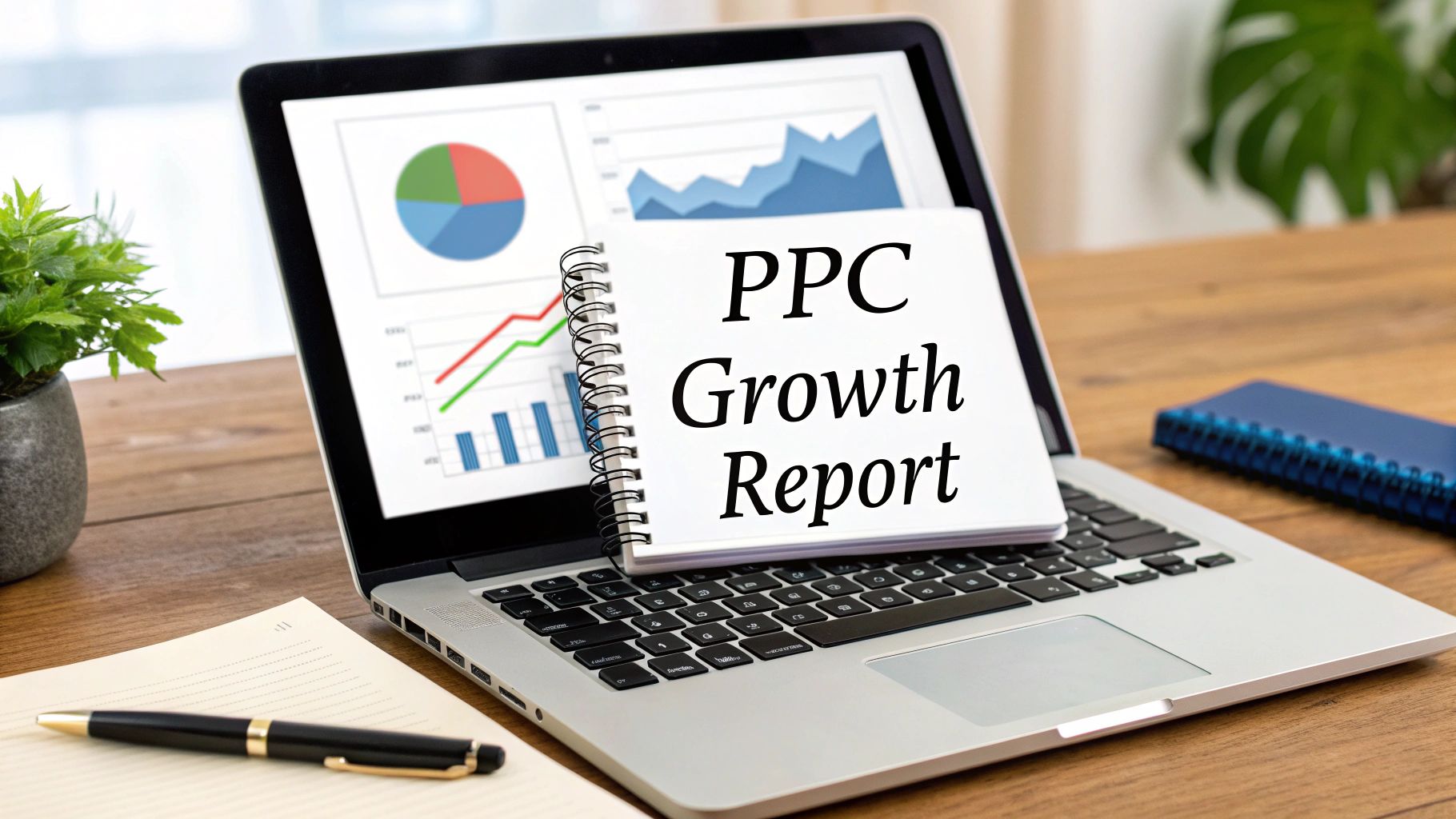
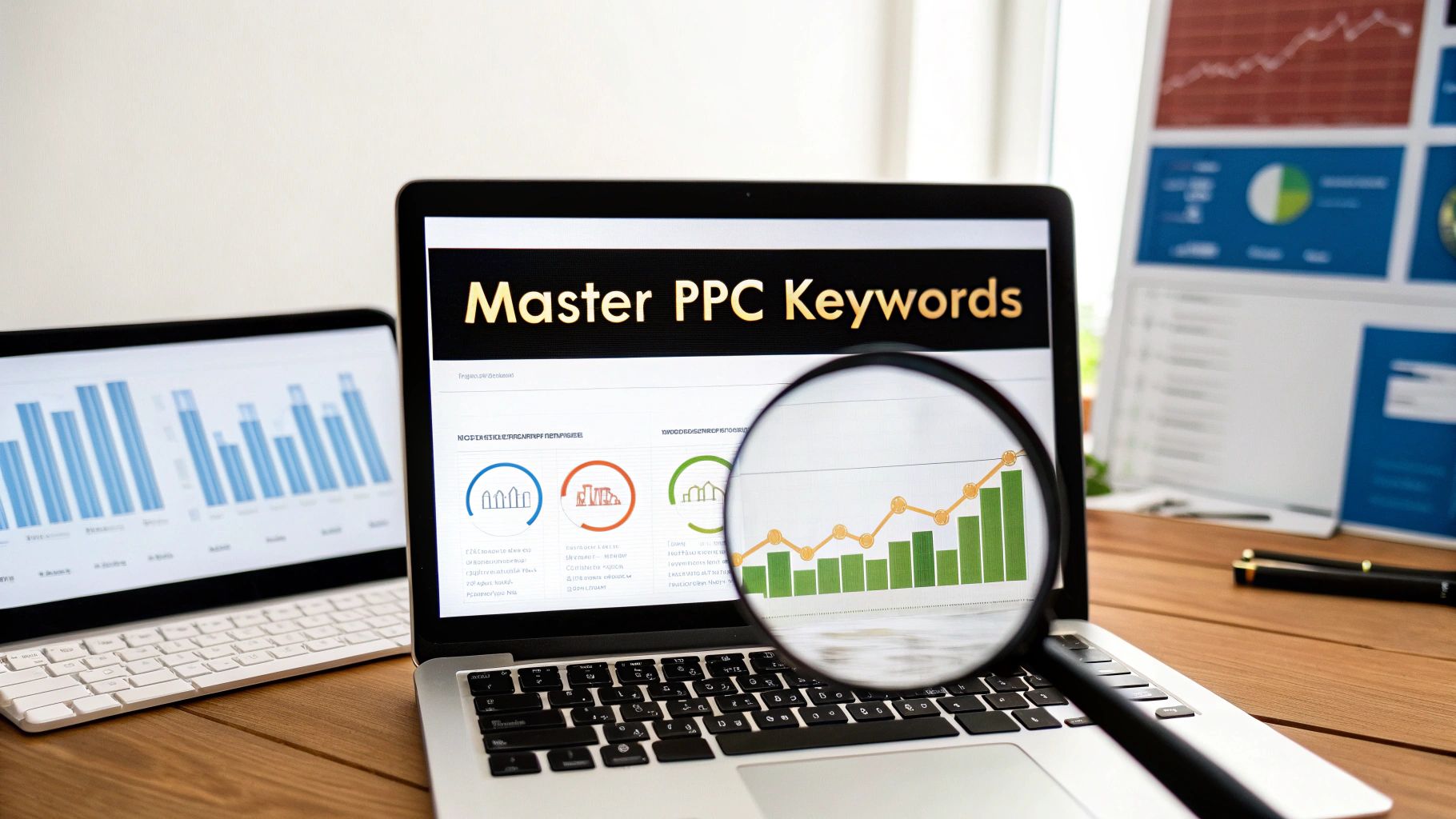
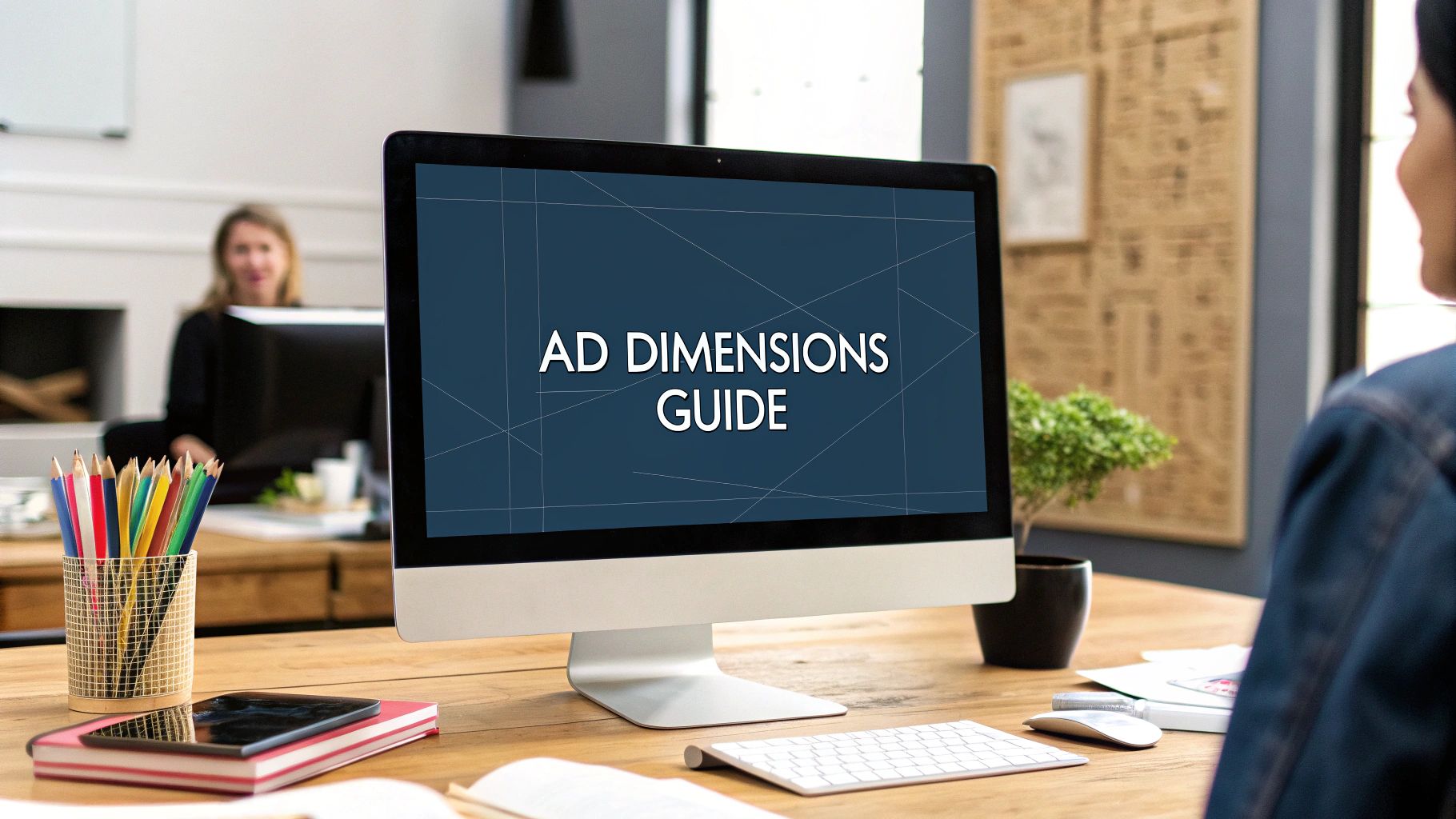
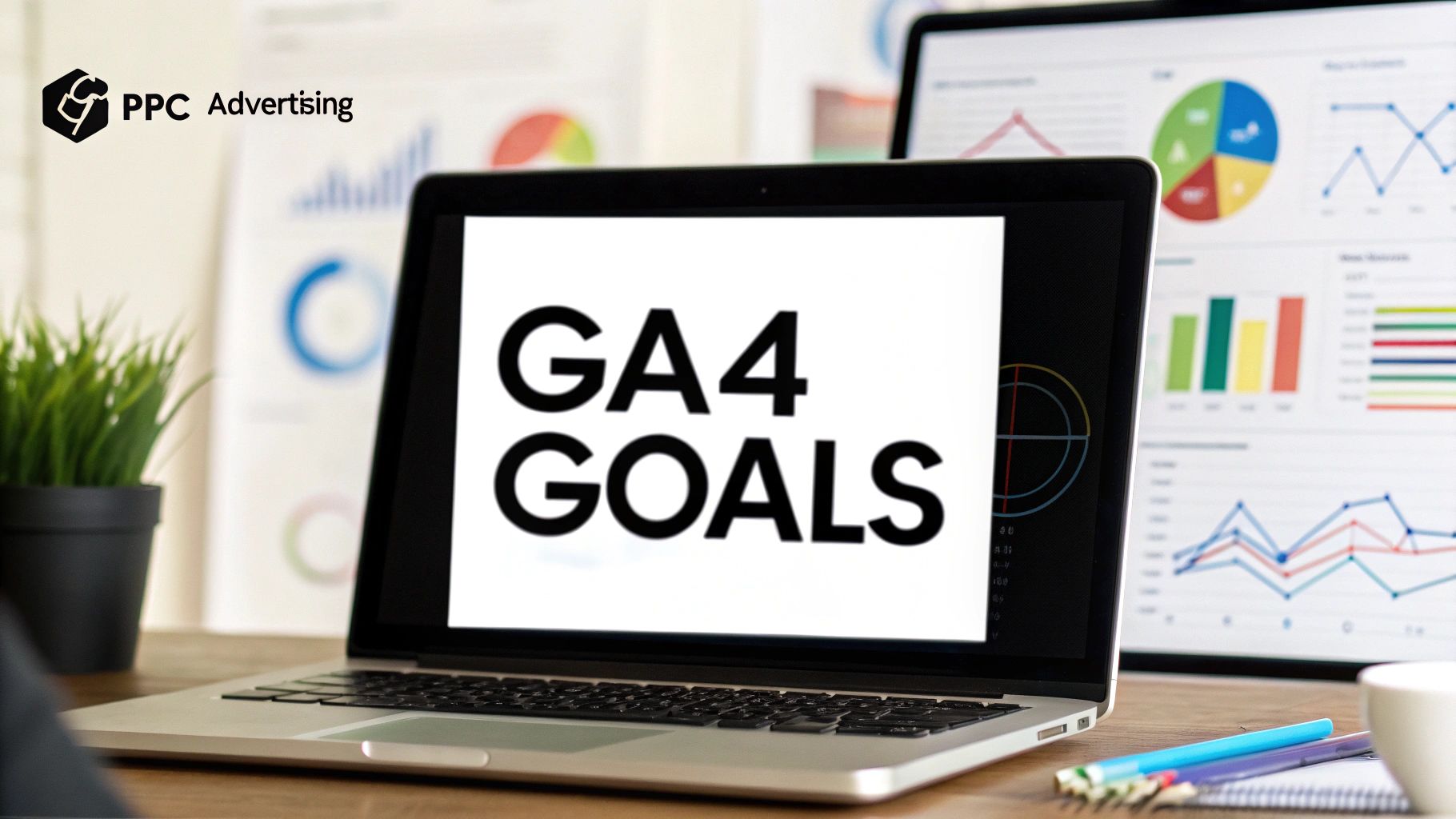
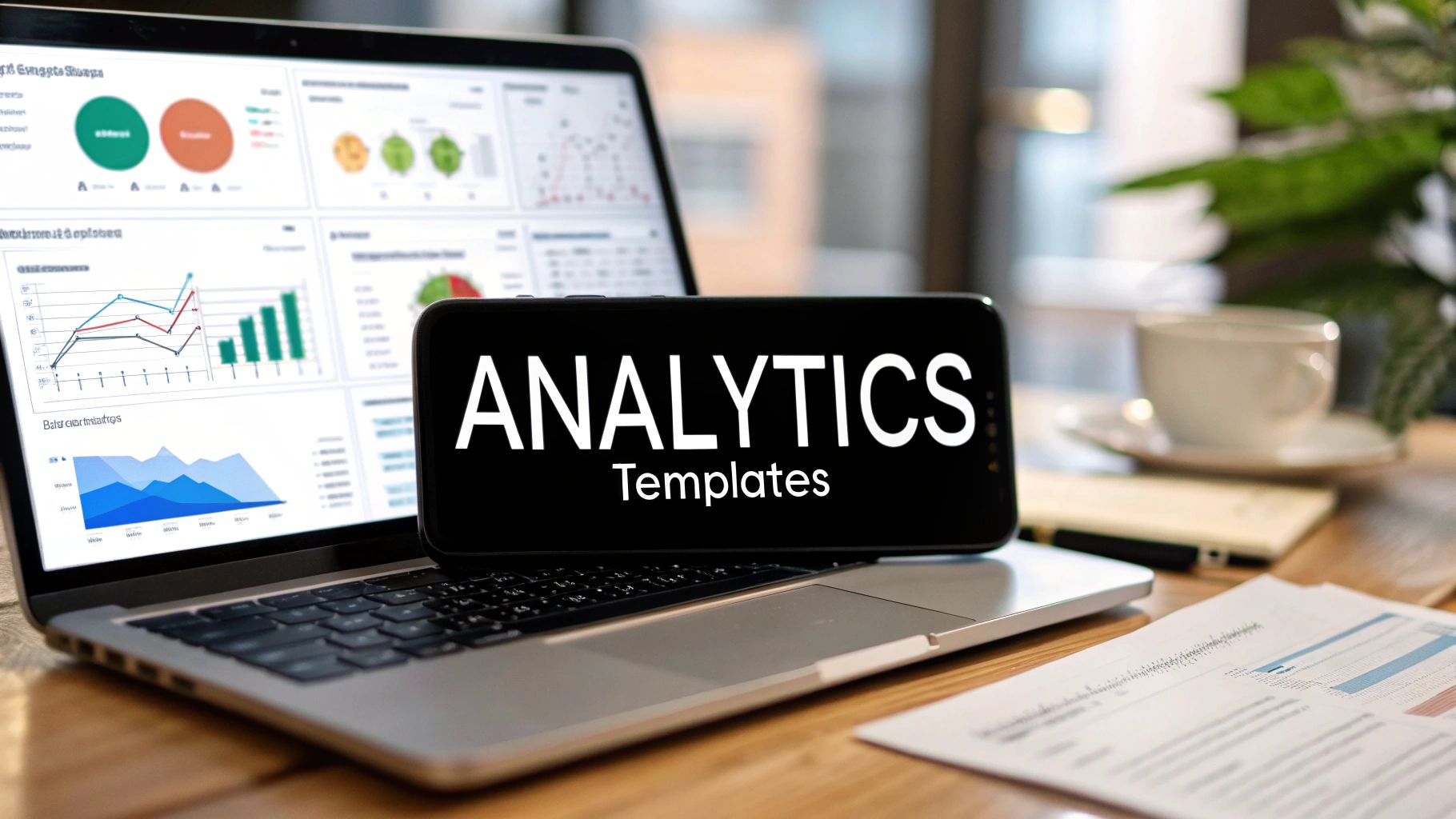
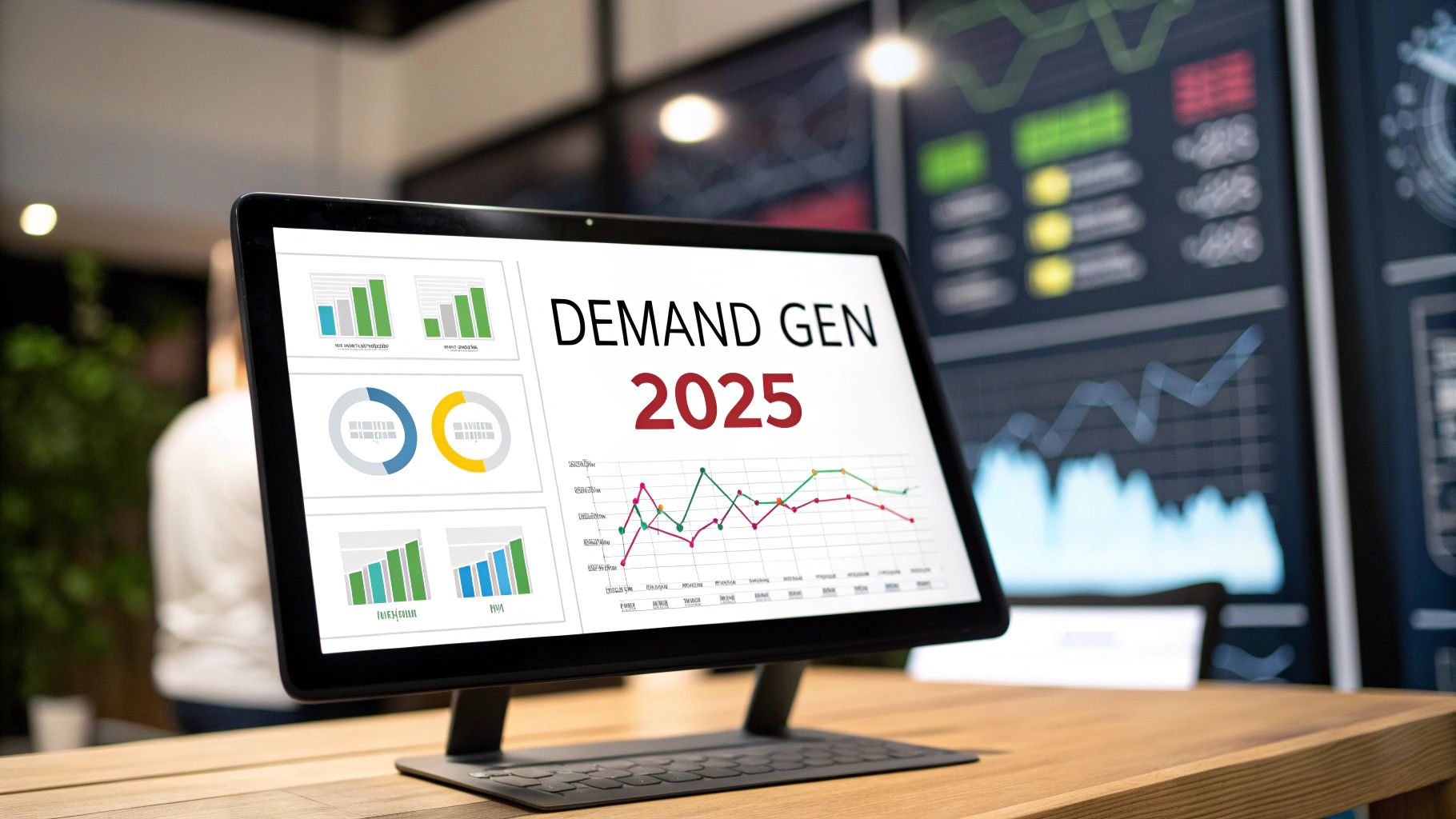
Comments